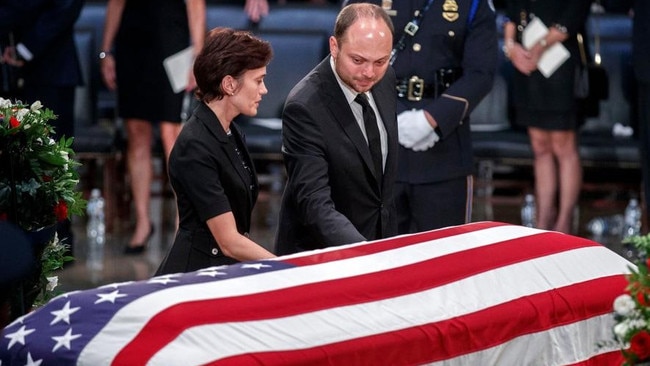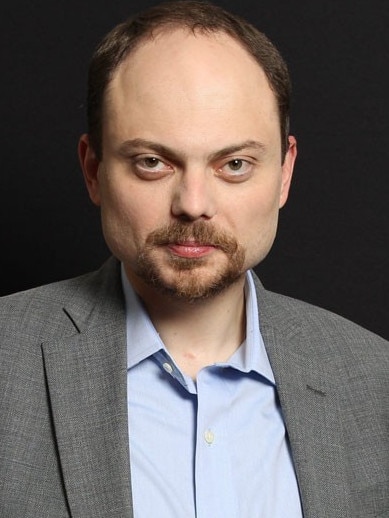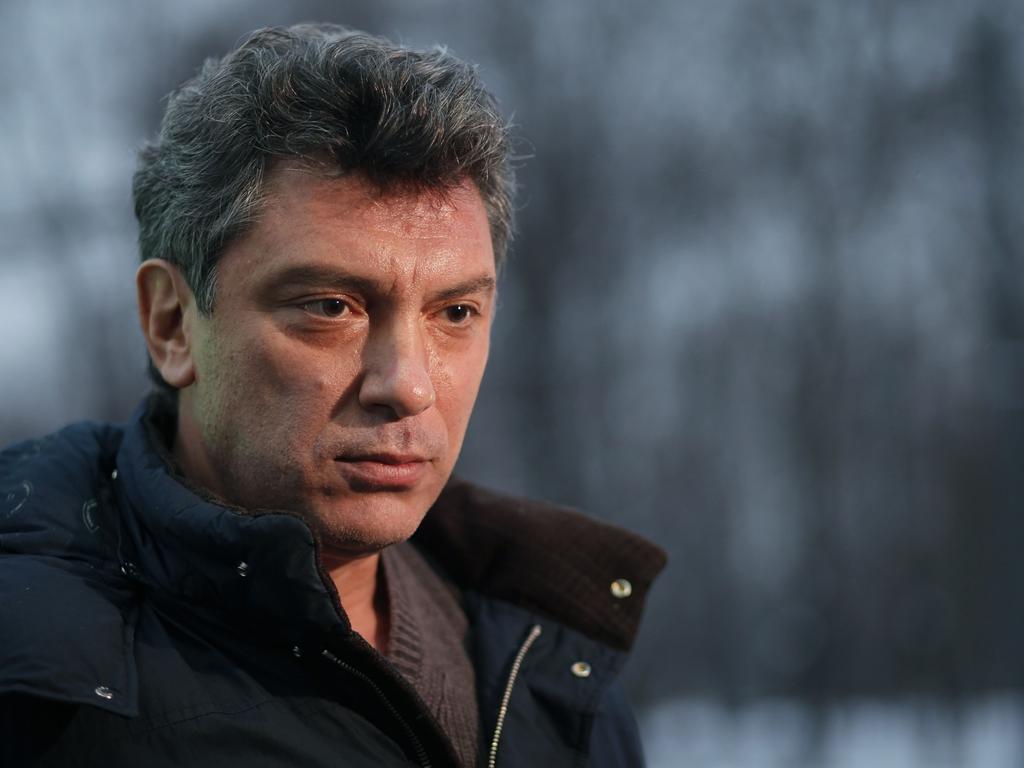‘Stonewalling’ FBI fuels suspicion of poison pact with Russia
After a Putin critic was poisoned in Moscow for the second time in two years, his wife took a vial of his blood to America. What happened next has raised alarm.

After Vladimir Kara-Murza, a Russian opposition activist, was poisoned in Moscow for the second time in two years, his wife, Evgenia, got on a plane to America bearing a vial of his blood.
Speed was vital: she was told that, the more time elapsed, the harder it would be to identify the mysterious toxin. FBI agents met her at Dulles airport near Washington and took the sample for testing. An early result was promised.
Three-and-a-half years later, the agency is still silent and stands accused of withholding information that could help to hold the Kremlin to account – not just for trying to kill Kara-Murza but for poisoning Alexei Navalny, President Vladimir Putin’s chief political opponent.
Navalny lay comatose in Berlin’s Charite hospital last week – after the Kremlin was accused of deliberately delaying his departure from a Siberian hospital to Germany for urgent tests to identify the poison that made him violently ill.
The Berlin doctors have been able to confirm only that it was “a substance from the group of cholinesterase inhibitors”, chemicals that include nerve agents such as the novichok smeared on Sergei Skripal’s doorknob when the Russian defector and his daughter, Yulia, were attacked in Salisbury in Britain two years ago.
Knowledge of what felled Kara-Murza could help the Berlin doctors. But the FBI is accused of stonewalling, raising suspicions of a mysterious backroom understanding with Russia to keep this particular substance under wraps. “There could be some deal between intelligence services: we won’t talk about this if you don’t do that,” said a former government official with knowledge of the affair.
Used extensively in the Soviet era, poison is again playing a prominent role in the Kremlin’s sinister repertoire of intimidation – and no case is more intriguing than that of Kara-Murza, who has no doubt that he and Navalny were targeted with a sophisticated toxin reserved for the security services.
Kara-Murza, 38, a Cambridge graduate and former protege of Boris Nemtsov, an opposition leader assassinated in Moscow in 2015, believes his lobbying in Washington for the Magnitsky Act, which imposed US sanctions on Russians accused of human rights abuses, put him in Putin’s sights.
During the Magnitsky campaign, he developed ties with several congressmen, including John McCain, a virulent Putin critic in the US Senate.
McCain chose Kara-Murza – along with Joe Biden, now the Democratic presidential candidate – to be one of the pallbearers for his funeral in 2018. This was seen as a posthumous jab by the senator at both Putin and President Donald Trump, who had seemed to make light of Kara-Murza’s poisoning – and who, as of Saturday, had expressed no concern for Navalny either.

While Navalny is believed to have been felled by a cup of tea laced with poison before a flight to Moscow, the delivery methods used against Kara-Murza are unknown – although he too had been on a plane when first attacked. “The first time I fell ill in 2015 it was after a flight. They know which seat you’re in, they can bring something to you on the plane,” he told me last week. “But it doesn’t need to be something in your food or drink,” he added, referring to the Skripal attack.
“Like Alexei [Navalny], I was crying out from the pain, had difficulty breathing and a racing pulse. Then I lost consciousness.” Doctors told his wife that he had only a one-in-20 chance of surviving. Miraculously, he did so.
After that first attempt on his life, Kara-Murza’s supporters sent a blood sample to a laboratory in Strasbourg. The results were inconclusive, although the analysis did show traces of heavy metals. When he was poisoned again in 2017, McCain arranged for the sample to be tested at the FBI’s crime lab in Quantico, Virginia.
Kara-Murza says that at the end of the year an FBI agent told him that traces of poisoning had been found and that the full results would soon be delivered. The agent also said that a report on his poisoning would be presented to the visiting directors of Russia’s main intelligence agencies, the FSB and the GRU.
A few weeks later, Kara-Murza was told that the results were “delayed”. He wonders if this had anything to do with the meeting with the Russian security chiefs.
Suspicions have been stirred further by the FBI’s failure to respond even to the Republican congressmen who sent letters to Christopher Wray, the agency’s director, urging him to release the results on the grounds that it might help to prevent more poisonings. Requests under the freedom of information laws have been ignored. So, too, were queries to the FBI last week by this newspaper.
Stephen Rademaker, a Washington lawyer acting for Kara-Murza, accused the FBI of “stonewalling” and added: “I can’t think of a good reason why it might want to withhold this information.”
Kara-Murza said: “I don’t need these results to satisfy my own curiosity but as a measure of protection against repeated attacks on my life.”
He added that he hoped that any proof of poisoning would help “to cut through the plausible deniability of the Kremlin”. The inability to determine the nature of the poison has allowed Moscow to cast doubt on claims made by stricken dissidents and their supporters.
“In my case they said the poisoning was caused probably by alcohol or an overdose of medicine,” he said. Similar rumours were put around about Navalny, and the Kremlin’s spokesman, Dmitri Peskov, described the poisoning verdict of the hospital in Berlin as “hasty”.
This year, Kara-Murza filed a lawsuit against the FBI and a judge has asked it to respond by October 15. It may still refuse to release the test results, however, on the grounds of national security.
Either way, Rademaker is impressed by his client’s determination to carry on fighting: “The courage that man displays returning to Russia after being poisoned twice is extraordinary. Most people would probably say, ‘OK, you’ve made your point, I quit.’”
Kara-Murza, whose wife and three children now live in America for their safety, said he would never give in. “The biggest gift we in the opposition could give Putin’s regime would be to run away and give up. So I haven’t. And I’m sure Alexei won’t either.”
The Times





To join the conversation, please log in. Don't have an account? Register
Join the conversation, you are commenting as Logout